Key Takeaways
- The Havanese breed originated in Cuba and is descended from the Bichon Tenerife.
- Havanese dogs are playful, affectionate, and intelligent, making them great family pets.
- They have a long, silky, and soft double coat that requires regular grooming.
- Havanese dogs are generally healthy but can be prone to genetic conditions like hip dysplasia, cataracts, and heart issues.
Origin and Size
The Havanese is a small dog breed that originated in Cuba. It’s a member of the Toy Group and has a lifespan of 14-16 years. The Havanese has a long, silky, and soft double coat that requires regular brushing and occasional professional grooming. In terms of temperament, they’re known to be playful, affectionate, intelligent, friendly, and have a low prey drive. The breed has a rich history in Cuba, where they were popular among the upper class and even served as gifts to visiting dignitaries. The Havanese is also the National Dog of Cuba. While generally a healthy breed, they’re prone to genetic conditions like hip dysplasia, cataracts, and heart issues. They require moderate exercise, respond well to positive reinforcement training, and can be stubborn at times.Temperament and Personality
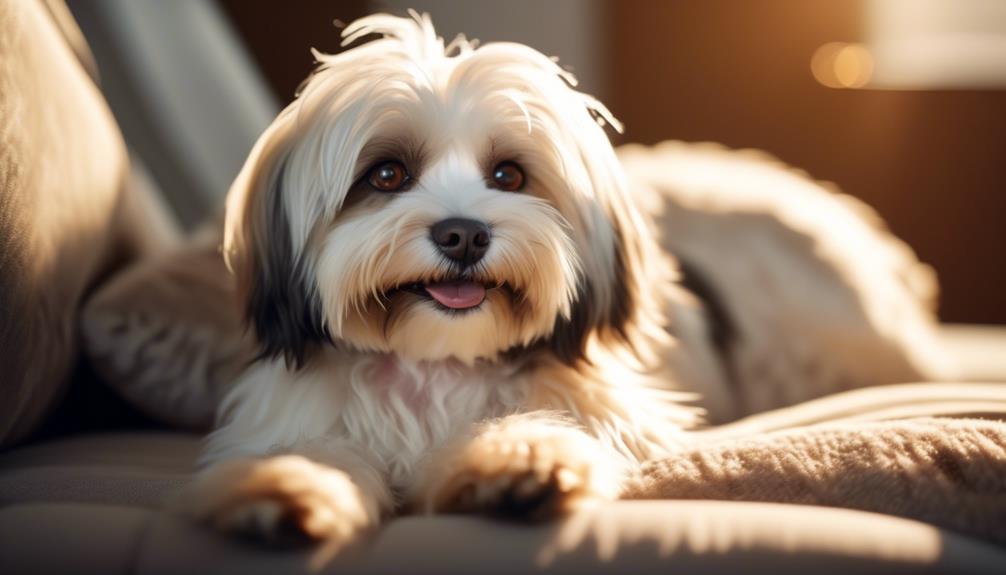
| Temperament | Personality |
|---|---|
| Playful | Affectionate |
| Intelligent | Friendly |
| Low prey drive |
Historical Background
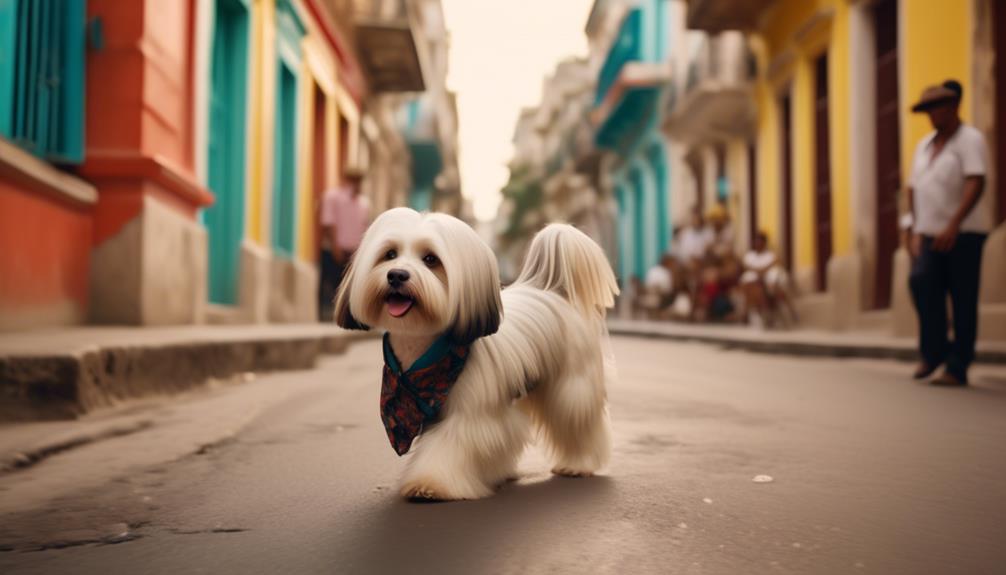
- Descended from the Bichon Tenerife, the Havanese breed has been around for centuries, originating in Havana, Cuba.
- They were popular among the upper class in Cuba and were often given as gifts to visiting dignitaries.
- In fact, they were even considered the National Dog of Cuba.
- The Havanese breed has a rich history of being cherished and valued for their charming personality and beauty.
Health and Care
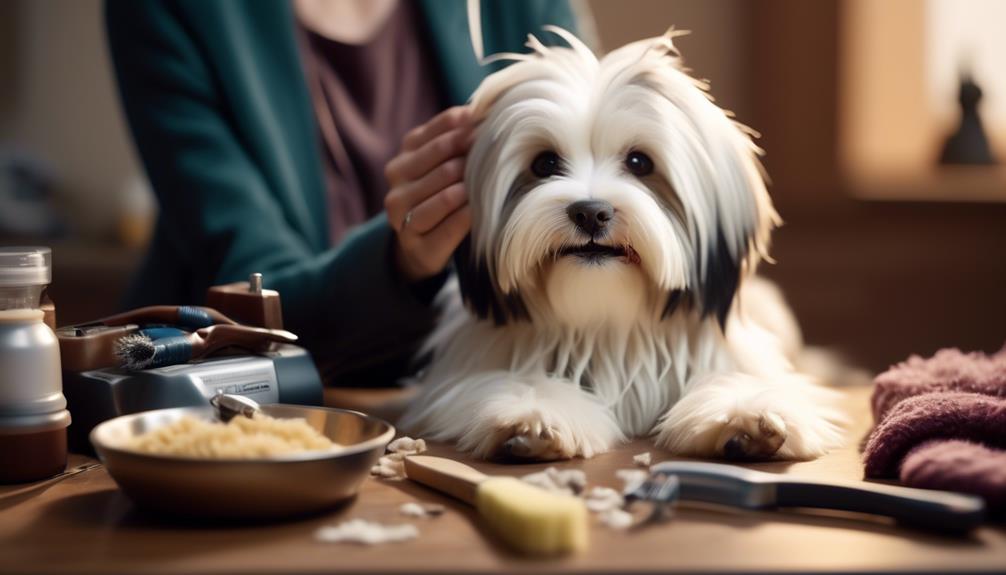
Grooming and Training
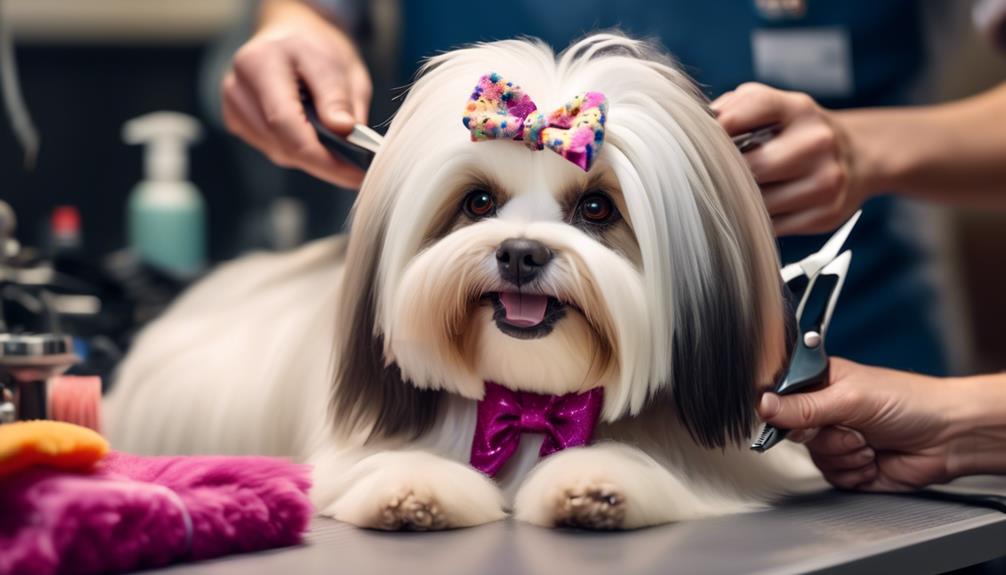
- Coat maintenance: The Havanese has a long, silky, and soft double coat that requires regular brushing to prevent matting and tangling. Occasional professional grooming is recommended to keep their coat looking its best.
- Obedience training: Havanese dogs are generally easy to train, but they can be stubborn at times. Positive reinforcement and gentle training methods work best with this intelligent breed. Starting with basic obedience training sets a foundation for good behavior.
- Housetraining challenges: Housebreaking a Havanese can be a bit challenging. Patience and crate training are important to establish a routine and prevent accidents in the house.
- Separation anxiety prevention: Havanese dogs are prone to separation anxiety, so it’s crucial to avoid leaving them alone for long periods. Gradual desensitization and crate training can help alleviate their anxiety.
Interaction With Children and Other Pets
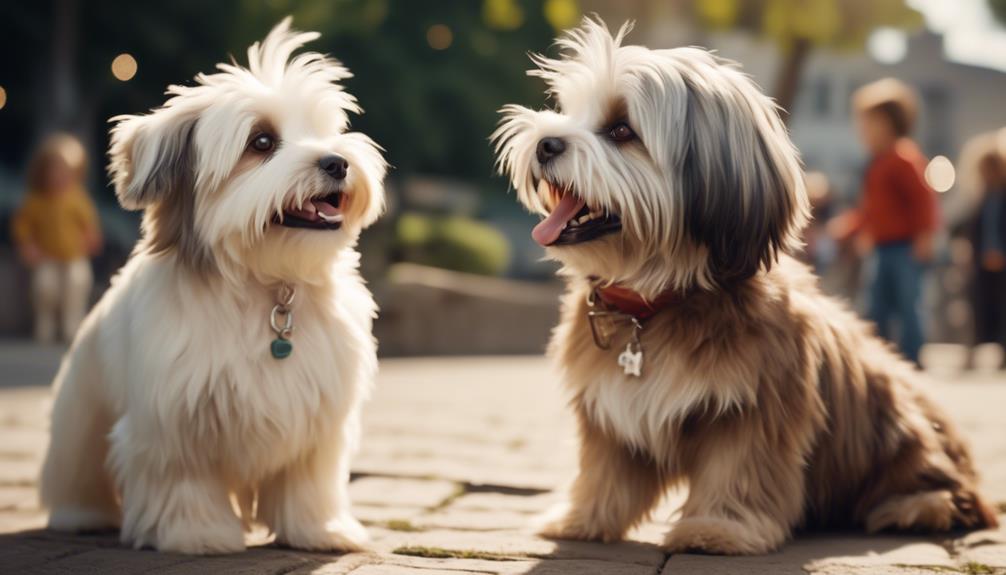
Frequently Asked Questions
Are Havanese Dogs Good With Allergies?
Yes, Havanese dogs are good with allergies. They have a hypoallergenic coat that doesn’t shed much, reducing the risk of triggering allergies. Regular grooming and cleaning can further minimize allergens.Do Havanese Dogs Require a Lot of Exercise?
Yes, Havanese dogs do require regular exercise to stay healthy and happy. They have moderate exercise needs, so daily walks and playtime should be sufficient. Keep them active to ensure their well-being.How Often Should Havanese Dogs Be Groomed?
Havanese dogs should be groomed regularly. Their thick, silky, and soft coat requires regular brushing and baths. It is recommended to seek professional groomers for their grooming needs to keep them looking their best.Are Havanese Dogs Prone to Separation Anxiety?
Yes, Havanese dogs are prone to separation anxiety. It is important to avoid leaving them alone for long periods. Provide them with plenty of attention and companionship to prevent this issue.Can Havanese Dogs Be Left Alone for Long Periods of Time?
No, Havanese dogs cannot be left alone for long periods of time. They are prone to separation anxiety and require constant companionship. It’s important to avoid leaving them alone for extended periods to ensure their well-being.What are the differences between Havanese and Havapoo breeds?
When comparing Havanese and Havapoo dog characteristics, a few key differences stand out. The Havapoo is a crossbreed of a Havanese and a Poodle, which can result in a variety of coat types. Havanese, on the other hand, have a distinctive long, silky coat and are a purebred toy breed.




